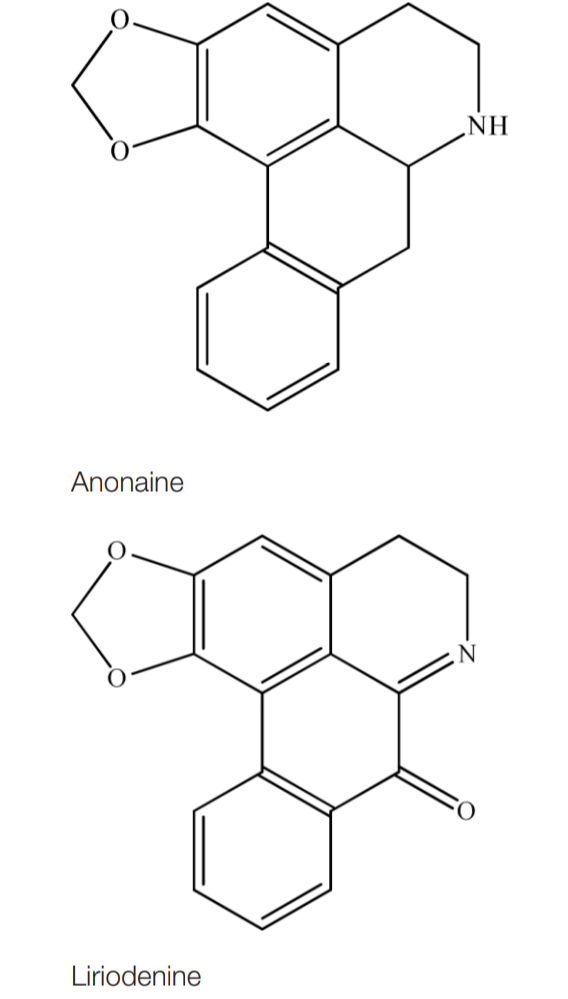 Alkaloids are a group of phytochemicals found in plants, but also produced in fungi, bacteria and animals. Plant alkaloids are of particular nutritional interest because although many are toxic to animals and humans, many have been shown to have beneficial health effects. In plants, alkaloids are secondary metabolites, and the structure of alkaloids is one of a basic nitrogen compound. Alkaloids are responsible for many of the pharmacological effects of herbs, and a number have been shown to elevate mood in animals and humans. The antidepressant effects of alkaloids are not fully understood, but researchers have shown that the mechanisms are likely numerous. In some cases alkaloids can inhibit the enzyme monoamine oxidase, reducing monoamine turnover and increasing brain levels of serotonin, dopamine and noradrenaline. In other cases alkaloids can directly activate dopaminergic, serotonergic and noradrenergic neurones. Other alkaloids may reduce levels of the stress hormones cortisol and corticosterone.
Alkaloids are a group of phytochemicals found in plants, but also produced in fungi, bacteria and animals. Plant alkaloids are of particular nutritional interest because although many are toxic to animals and humans, many have been shown to have beneficial health effects. In plants, alkaloids are secondary metabolites, and the structure of alkaloids is one of a basic nitrogen compound. Alkaloids are responsible for many of the pharmacological effects of herbs, and a number have been shown to elevate mood in animals and humans. The antidepressant effects of alkaloids are not fully understood, but researchers have shown that the mechanisms are likely numerous. In some cases alkaloids can inhibit the enzyme monoamine oxidase, reducing monoamine turnover and increasing brain levels of serotonin, dopamine and noradrenaline. In other cases alkaloids can directly activate dopaminergic, serotonergic and noradrenergic neurones. Other alkaloids may reduce levels of the stress hormones cortisol and corticosterone.

Annona cherimola is a herb that is used in traditional South American medicine for its mood elevating properties. Alkaloids including anonaine and liriodenine many be responsible for these effects. The chemical structure of anonaine and liriodenine is shown above. Image from Perviz, and Pervaiz (2016).
Eat Well, Stay Healthy, Protect Yourself
RdB
